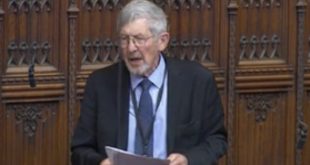
The UK Gambling Commission (UKGC) has stood by the progress of its ‘multi-agency approach’ that has been applied through its National Strategy to reduce gambling harms launched in 2019.
An update by Rob Burkitt, the Commission’s policy lead on shared regulation, underscored the importance of local authorities’ support of the National Strategy to achieve a shared objective to reduce gambling harms impacting communities.
Reflecting on the launch of the National Strategy, Burkitt stated that a multi-agency approach was necessary as the Commission “doesn’t have the resources, remit or powers to accomplish the objectives set out in the strategy on our own”.
“Even before the strategy was introduced, there had been considerable local authority (LA) interest in gambling harm as a public health matter. LAs in Leeds, Sheffield and Birmingham were keen to look at gambling in a similar way to the approach they already applied for issues like alcohol and drugs,” Burkitt noted.
Supporting local authorities, the UKGC achieved its objective of expanding the National Strategy’s stakeholder network, including participation by the bodies of the Local Government Association and the Institute of Licensing.
The success of a local approach has led UKGC to fund two projects by Greater Manchester Combined Authority and Yorkshire and Humber Public Health allowing the Strategy to gain greater oversight on impacts recorded within the regions.
The Commission outlined further benefits of a multi-agency approach, that led to local authorities sharing best practices on problem gambling support, and with the Commission’s strategy benefitting from direct feedback from participating authorities.
“The success of this combined approach has led us to create a network of LAs, who now meet virtually every three months. The meetings are coordinated by the Commission and have 46 members. ” Burkitt
“It can sometimes be a slow process to change hearts, minds and culture, however, our three-monthly sessions do appear to be helping us move towards achieving that ambition by applying a multi-agency approach.”
Despite its success, Burkitt noted caution with regards to how quickly progress can be achieved by the expanding network as COVID-19 has stretched all local authorities and public health resources,
Of heightened significance, Burkitt underlined the continued growth and participation of local authorities that had helped the UKGC secure the most diversify coverage for its strategy – “with members coming from inner-city London boroughs through to seaside resorts.”
“The Commission’s role will be to continue to act as a facilitator and enabler, disseminating good practice into each Local Authority,” Burkitt concluded.
“Implementation of the strategy and a public health approach to reducing gambling harms will always be locally specific. Whilst it is too early to say exactly what impact the group will have in terms of implementation, the early signs are very encouraging.”









